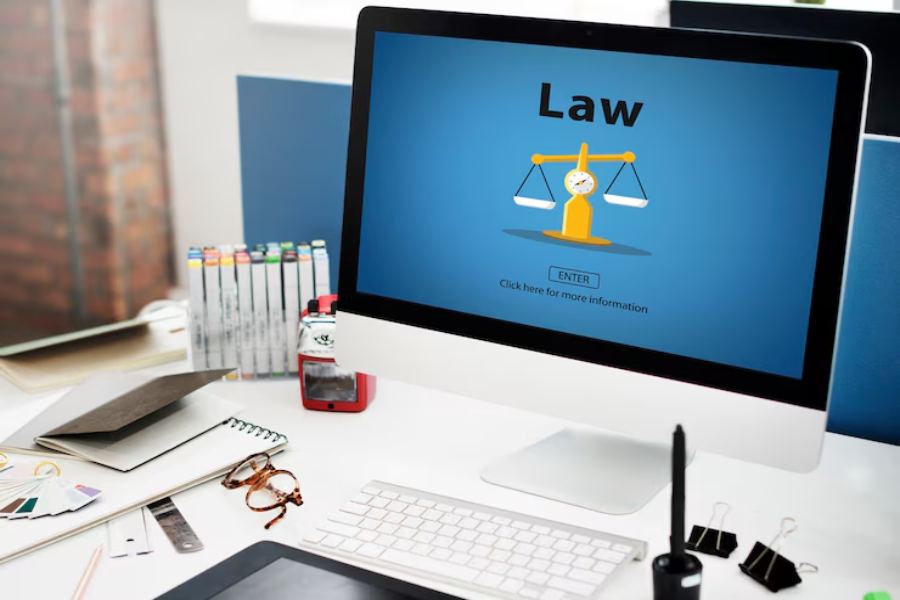You and your team don’t just practice law. You manage chaos. You organize thousands of moving parts while keeping clients informed, co-counsel aligned, and courts satisfied. It’s intense. And when you’re handling high-volume or high-stakes litigation, even the smallest mistake can set you back.
In such cases, relying solely on outdated workflows or basic tools is insufficient. Your team deserves systems that do more than store files. You need tools that keep everything connected, traceable, and easy to navigate. Legal tech can fill the gaps that slow you down, reduce costly errors, and enable your team to focus on what really matters.
In this article, you’ll find practical ways legal technology helps streamline your process when litigation gets complicated.
The Chaos of Complexity
You’ve probably seen it before. One case file turns into ten. Then ten becomes a hundred. Before long, you’re juggling claimants in the thousands, discovery that never ends, and a constant flow of updates from co-counsel, courts, and clients. Complex litigation doesn’t just test your legal skills. In fact, it tests your ability to manage information under pressure.
Email threads are no longer enough. Shared drives start to buckle under the weight. Even more concerning, the smallest missed deadline can have outsized consequences.
At this point, legal tech becomes essential. It is not about flashy features. More importantly, it is about keeping your cases moving forward when everything around you threatens to slow you down.
What Tech Actually Solves
At its core, the right tools cut through the noise. In big cases, a lot can go wrong—duplicate work, buried documents, missing notes, or updates slipping through the cracks. But when your system already takes care of these problems, you’re not scrambling to fix issues. You’re preventing them from happening in the first place.
This matters even more when you’re trying to manage complex mass tort cases efficiently. That’s exactly where smart software makes a real difference. It gives mass tort lawyers a centralized system to handle high volumes of interconnected cases with ease. From organizing massive sets of evidence to streamlining case strategies, it handles the heavy lifting, allowing your team to focus on the legal work that truly matters.
It’s not just about knowing the law anymore. You’re coordinating with clients from different states, dealing with shifting filing rules, and juggling a constant flow of intake and communication. Without the right setup, it’s overwhelming.
How It Changes Team Workflow
Efficiency isn’t only about doing more in less time. More accurately, it is about knowing what’s next without having to dig for it. The more complex your case becomes, the more valuable that clarity is.
Legal tech helps teams stay aligned. Everyone can check the case status without having to send five emails. Tasks are not forgotten because they are tracked and assigned to individuals. And if someone is out for the day, someone else can step in and keep things moving without confusion.
This also gives partners peace of mind. When you’re managing massive cases with dozens of moving parts, transparency becomes critical. You don’t want to rely on memory or scattered notes. Instead, you want dashboards, timelines, and reports. These tools help you step back and see the full picture while still keeping an eye on the details.
Less Stress. Fewer Errors
Mistakes in complex litigation are not just embarrassing; they can also be costly. Sometimes, they can hurt your case. Missing a deadline for a specific court filing or sending out the incorrect version of a document can result in delays, penalties, or worse.
Legal tech helps reduce that risk by keeping you informed. When reminders are built into the system and version control happens automatically, you’re no longer leaving anything to chance. That takes a heavy weight off everyone’s shoulders.
Clients notice it too. They might not see the systems you’re using, but they feel the difference. They get faster updates, fewer delays, and more reliable communication. In high-stakes cases, that kind of trust can make all the difference.
Some firms also use features like text to speech tools to enhance accessibility and streamline internal updates—especially when multitasking or sharing summaries quickly.
Not Just for Big Firms
One common misconception is that this kind of tech is only for large firms with deep pockets. However, even smaller teams can benefit. In fact, when they’re handling cases with high complexity, tech can be their biggest advantage. It provides them with the tools to compete, collaborate, and stay on top of matters that would normally require a much larger team.
What matters most is finding something that fits the way you work. Not every platform is right for every firm. Still, once you find a solution that integrates well with your current process and can grow with your caseload, you’ll start to wonder how you ever managed without it.
Wrapping It Up
Complex litigation will never be simple. Even so, it doesn’t have to feel overwhelming. Legal tech won’t do the thinking for you. However, it can clear the way, allowing you to have more time and space to focus on it. There are fewer distractions, less guesswork, and more time for what truly matters. Ultimately, that is what real efficiency truly looks like. Not just doing work faster, but making it easier to get better results.


